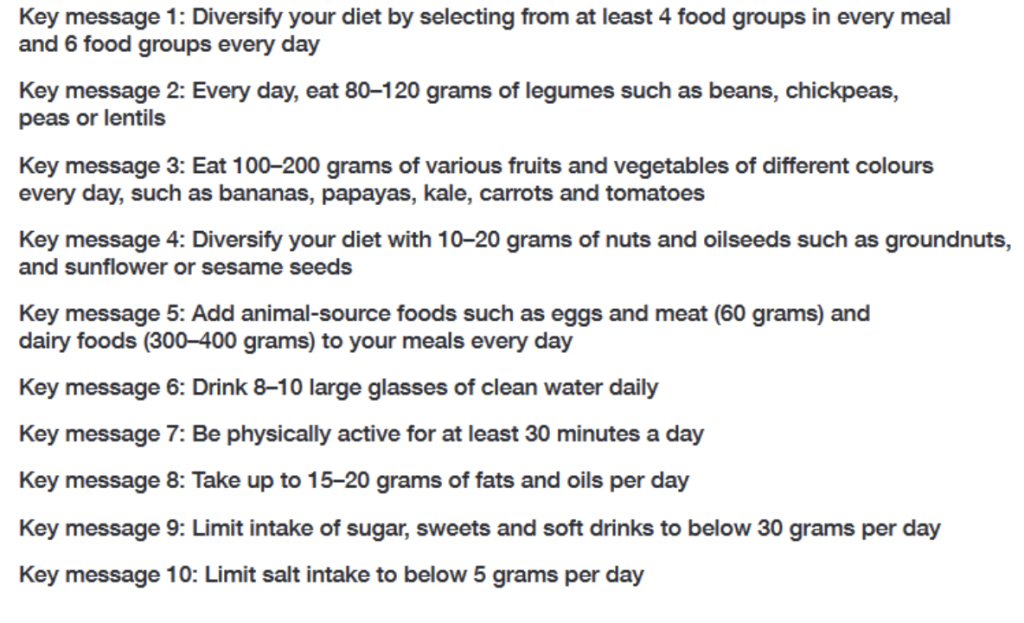Highlights:
Despite sustained growth and developments in agriculture, Ethiopia still ranks among food-insecure countries where millions suffer from various forms of under nutrition. The underlying causes of food insecurity include unavailability, inaccessibility and consumption patterns characterized by limited diet diversity and inadequate access to nutrient-dense and safe foods, as well as sustainability over time. Even households with access to sufficient nutritious food still suffer from poor nutritional status because of poor dietary practices leading to different forms of malnutrition.
Ethiopia has attained an important milestone by developing Food-Based Dietary Guidelines for Ethiopians two years and older. Agriculture has a leading role in assuring the better consumption patterns being promoted by the Ethiopian Food Based Dietary Guidelines by ensuring the availability and accessibility of a nutritious food basket for the public. Food Based Dietary Guidelines will provide guidance on the areas of focus under different agro-ecological settings. Positive development in the agriculture sector for food security and nutrition should be reflected by an increase in diet diversity at household level resulting from household production or through economic access, along with the other indicators that are monitored.

| Year of publication | |
| Publisher | Federal Democratic Republic of Ethiopia Ministry of Health, Ethiopian Public Health Institute in collaboration with Ministry of Agriculture and Ministry of Education |
| Geographic coverage | Ethiopia |
| Originally published | 03 Nov 2023 |
| Knowledge service | Metadata | Global Food and Nutrition Security | Nutrition | Dietary guidelinesFood systems transformationFood and nutrition securityFood consumptionHealthy diet |
